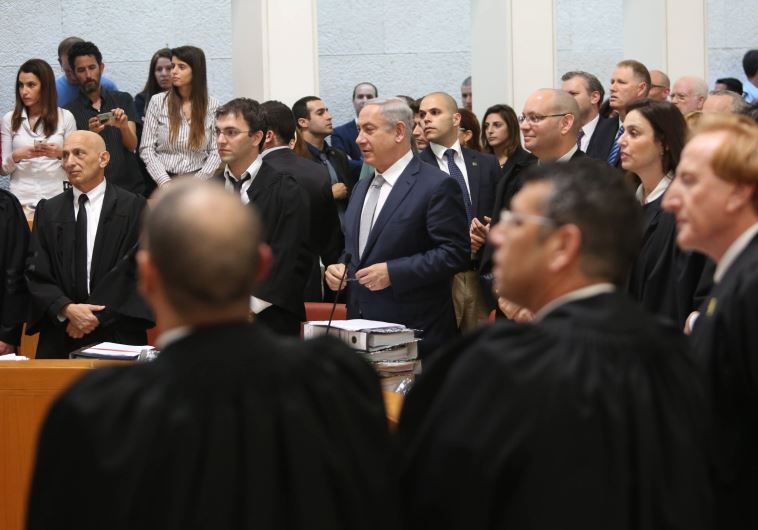Is it wrong to critique decisions by the Israel Supreme Court?
Nowhere is criticism of the court more warranted than in the gas decision. Nothing in Israeli law bars such long-term commercial arrangements.
 Prime Minister Benjamin Netanyahu addresses the High Court on the gas deal(photo credit: GIL YOCHANAN/POOL)Updated:
Prime Minister Benjamin Netanyahu addresses the High Court on the gas deal(photo credit: GIL YOCHANAN/POOL)Updated: